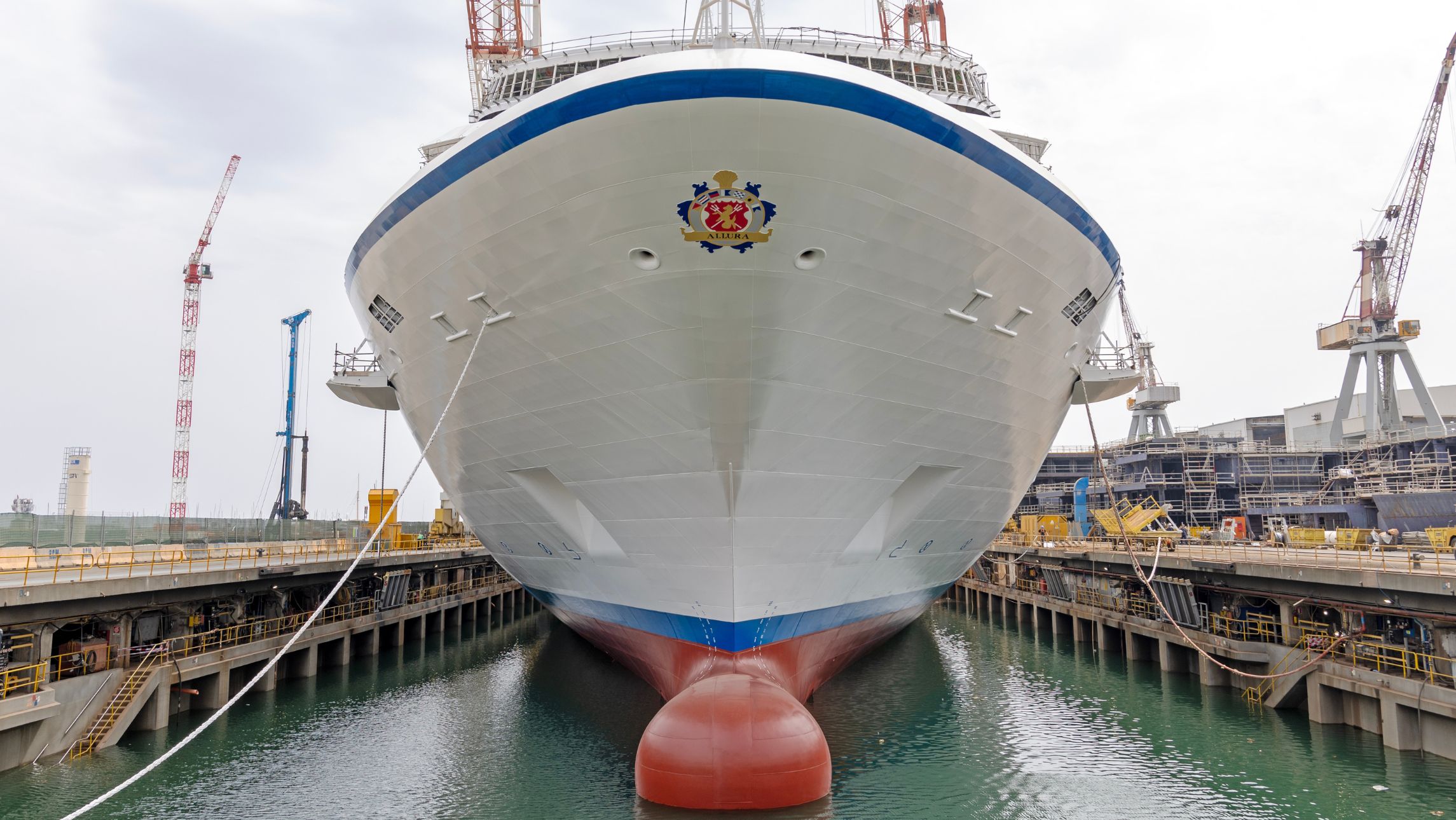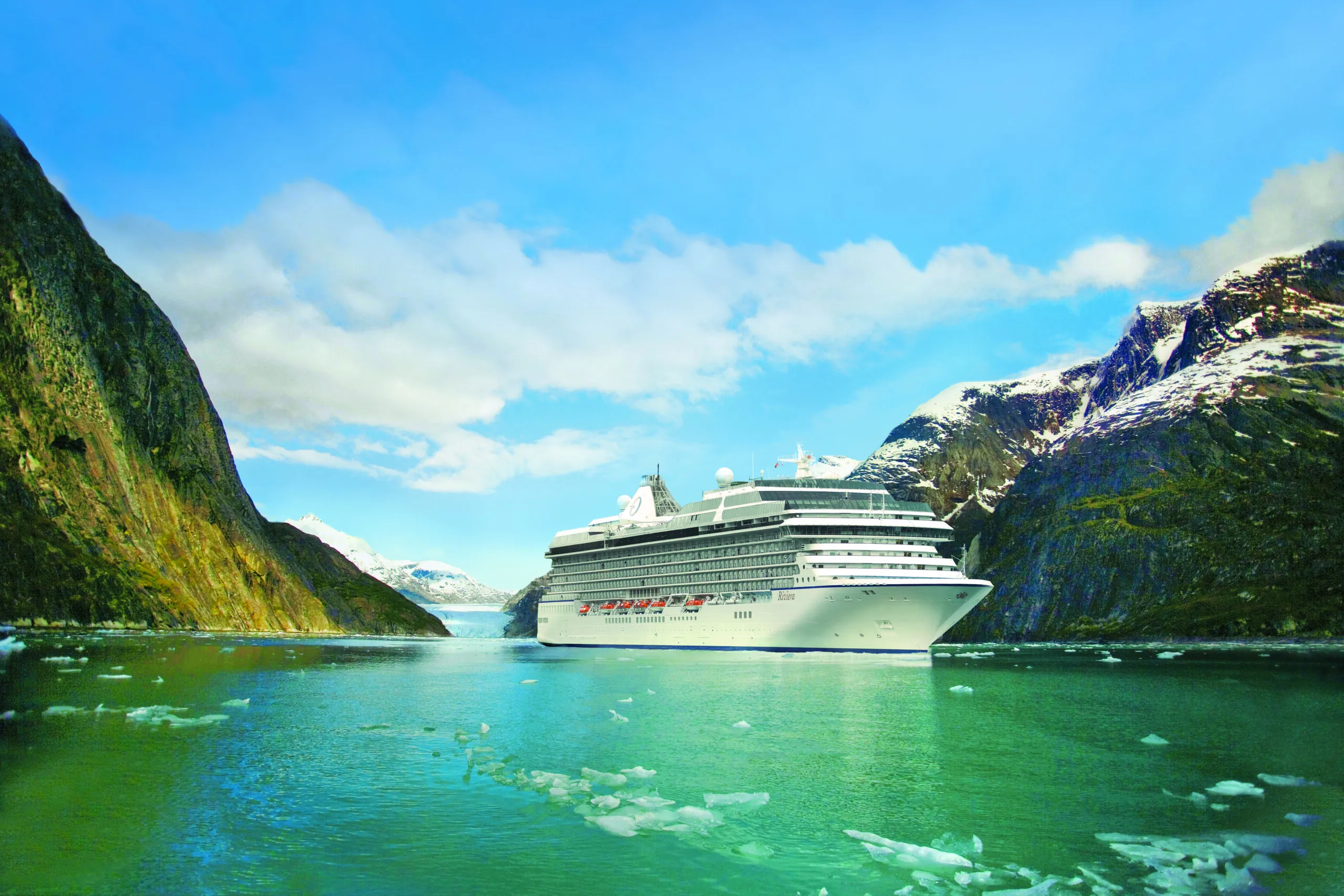It was a big birthday celebration. And Elizabeth Molloy was booked on a 38-day Singapore to Rome grand voyage with Oceania Cruises to celebrate her husband’s big day.
The early May departure was unfortunately cancelled last month – but the seasoned travellers are not letting the disappointment and confusion of sorting out the cancellations stop them from having a birthday cruise.
The Molloys are among the lucky few.
Like many other cruisers, they started combing through the fine print of their travel insurance after their Oceania cruise costing more than $50,000 was cancelled.
They took out Cover-More travel insurance last October – well before COVID-19 became a known event. But that didn’t help them. Buried in the fine print was a clause that excluded events like this, and in the days before caronavirus became so well known it would have seemed an unlikely scenario to cover anyway.
“I just put a claim in for a cancelled cruise, it’s so confusing, I figured, put it in see how it goes,“ said Ms Molloy.
Luckily for her, most of her holiday budget was protected by the generous cancellation policies of Oceania Cruises, flights with Singapore Airlines and tours with Viator – a big tick for staying with good operators and established brands.
“Luckily both cruise and airline have agreed to 100% refund but as yet have not received it from either cruise line or airline. They did say it might take four to six weeks,” says Ms Molloy.
“We have also found (we travel a lot) that booking tours with Viator has a lot of positives, the ones we booked with them were a simple matter of hitting cancel and the money flowed straight back.
“I am only left with $911 out of pocket which I am trying on insurance, so I can’t really complain. It’s the extras like accommodation for before and after, privately booked tour and Indian Visas.”
She heard back from Cover-More two weeks later that her claim was a no go. But she has already moved on.
For those cruisers who didn’t pick reputable brands, it would have been a disaster.
The Molloys are now rebooked on a 10-day Kimberley cruise with Ponant sailing from Darwin to Broome.
“If it is on we will go. I genuinely believe we will be at more risk, just grocery shopping. The ship is small and the ports are nature. But we will see I suppose,” says Ms Molloy.
The Molloys story shows how complex the fine print of your travel insurance can be. Travellers cannot assume that they are covered even if they took out travel insurance before COVID-19 became a known event.
Just this week, COVID-19 has been officially named a pandemic by the World Health Organisation. And the Insurance Council of Australia has declared the COVID-19 outbreak as an ‘insurance catastrophe’ last week. So does any of this affect your travel insurance coverage?
Pandemic and insurance coverage
“The official movement to classification of pandemic will provide clarity on the situation classification, however, this does not necessarily change the cover provided as pandemics, epidemics and infection outbreaks are generally grouped together when excluded,” says Mitchell Watson, Head of Research at Canstar, financial product comparison experts.
“For future purchases, consumers may place closer attention to exclusions surrounding events like COVID-19. Events like this aren’t common but this highlights the type of situations that may impact future travel outside of the usual considerations of natural disasters (e.g. volcano eruptions) or travel disruption due to travel carrier constraints.”
So as a rule of thumb, new policies taken out after COVID-19 became a known event would probably not be covered for claims related to COVID-19 (late January for most insurers, check with each insurer for specific dates).
For existing policies, it depends. But here are three main ways travel insurance treat epidemics and pandemics according to Canstar’s analysis.
- Some policies exclude epidemics and pandemics altogether. If you have one of these policies, expect no claim to be paid if your expense is linked to coronavirus.
- Some policies will cover medical costs overseas in relation to pandemics and epidemics, but not cancellation costs or loss of bookings, etc.
- Some cover both medical costs overseas and cancellation costs in relation to pandemics and epidemics.
“Known event clauses are common amongst insurers and across insurance types like travel and home insurance. The activation of known events amongst insurers has been seen before for events like a volcano eruption,” says Mr Watson.
“This clause allows insurers to limit their exposure to events which are known and which people may only look to insure themselves against once they know it may have an impact on their travels.”
Make sure you are receiving your policy entitlements
Meanwhile Assistant Treasurer Michael Sukkar has met with insurance bosses last week to remind them of the duty to their customers. Mr Sukkar also urged travellers who believe they are not receiving their policy entitlements to lodge a complaint with the Australian Financial Complaints Authority.
“The Australian Financial Complaints Authority (AFCA) has received a small number of complaints that relate to coronavirus (COVID-19) since the outbreak began. The majority of complaints have been about the denial of travel insurance claims,” says John Price, AFCA Lead Ombudsman – Insurance.
“While events like pandemics are rare, it is common practice for insurers to place embargoes, or cut-off dates, on new policies after significant events like natural disasters become known. It is up to the insurance provider to determine the risk it is willing to take on new policies.
“If a consumer has cancelled their travel arrangements due to COVID-19, they should talk to their travel agent, airline and accommodation providers first about a refund. Following that, they should contact their insurer about making a claim. Each claim should be judged on its merits and based on a fair interpretation of the travel insurance policy. AFCA expects insurers to respond quickly and efficiently to insurance claims.
“Consumers can come to AFCA if they are unhappy with the outcome of their claim and are unable to resolve this directly with their insurer. AFCA is an ombudsman service providing free, fair and independent help with financial disputes. ”
You can contact AFCA on 1800 931 678 or afca.org.au. They have a dedicated COVID-19 hub available online: afca.org.au/covid-19”








